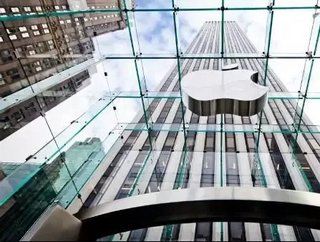Apple: an update

With the news that Apple’s iPhone 8 is set to be delayed until October or November as a result of technical issues, the tech giant is breaking their five year tradition of releasing the next model iPhone in September. We take a look at what developments have been happening at Apple, where the company has released a new app, whilst courting controversy in other areas of the business.
The iPhone 8 is set to be delayed
Rumours are continually circulating around the release date for Apple’s eighth iPhone set for launch later on this year. Whilst previous iPhone editions are released to a high consumer demand (the previous phone sold out one week after release), consumers have been incensed at the notion that the new edition to join the iPhone family is set to be delayed as a result of technical issues, with the release date being pushed back until October or November.
It has been stated that the design of the new iPhone will be without a home button and will introduce facial recognition software and curved OLED screens, which will be supplied by Samsung. Interestingly, it has also been reported that the new iPhone will incorporate wireless charging, something which will appeal to consumers on the move.
Defunct models
Apple’s products are high quality and long lasting, but this has worked against them when releasing new models and upgrades of the iPhone. Although one of the most popular products, the iPhone is so good that many consumers do not upgrade their model as regularly, unlike the traditional method of upgrading every two years in line with contract renewals. The release of the iPhone 6s and iPhone 7 were not favourable, nor did the technology become more sophisticated, disappointing consumers who sought the best phone on the market. Apple has been able to counteract this by discontinuing older models, such as the iPhone 5, in addition to older games and apps, which will no longer “work with future versions of iOS.” Nonetheless, Apple has stiff competition from competitors such as Samsung, which critics have viewed as outstanding.
Release of Apple Clips
Snap Inc has recently gone public and seen product Snapchat gain over 10 million active users. Tech giants, such as Facebook have replicated Snap’s technology by releasing Instagram ‘Stories,’ realising how millennials are preferring to speak in ‘Images’ rather than dry text language. Apple has now developed their ‘Clips’ feature, available for free to download in the apps store. In a press release, they have described the feature as “an all-new way to produce quick, engaging videos to share through the Messages app, or on Instagram, Facebook and other social networks.”
The user is able to create videos and utilise voice recognition, which can then be turned into captions, besides including music, all of which can be sent to friends and family. Echoing similar apps, filters can be applied, providing a fun and engaging app for the market.
Controversy
However, the company has recently been in hot water. Although Apple acknowledged the glitch in its system last year which led to some users receiving an ‘Error 53’ response last year, the Australian Competition and Consumer Commission has now filed a federal lawsuit, stating Apple has violated consumer law.
If an iPhone user previously took their phone to be fixed by a third party, it has been recognised that Apple’s software rendered some phones obsolete without warning. Whilst Apple has previously stated that this is a security feature within the phone which renders the phone defunct, it is under no obligation to fix the phones affected. The company released a statement to clarify the issue:
“We take customer security very seriously and Error 53 is the result of security checks designed to protect our customers. iOS checks that the Touch ID sensor in your iPhone or iPad correctly matches your device’s other components. If iOS finds a mismatch, the check fails and Touch ID, including for Apple Pay use, is disabled.”
Regarding the lawsuit, ACCC chairman Rod Sims has said: “Consumer guarantee rights under the Australian Consumer Law exist independently of any manufacturer’s warranty and are not extinguished simply because a consumer has goods repaired by a third party.”
“Denying a consumer their consumer guarantee rights simply because they had chosen a third-party repairer not only impacts those consumers but can dissuade other customers from making informed choices about their repair options including where they may be offered at lower cost than the manufacturer.”
If the lawsuit is successful, Apple will have to pay an extensive amount in damages and pave the way for similar lawsuits in the UK and US, who have previously also taken Apple to court without success.






